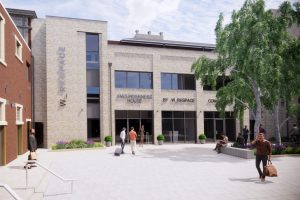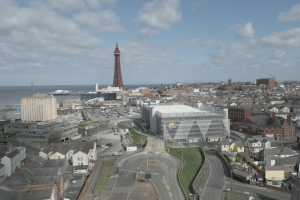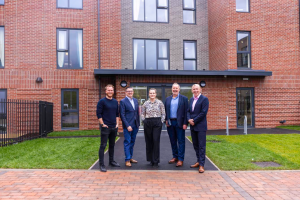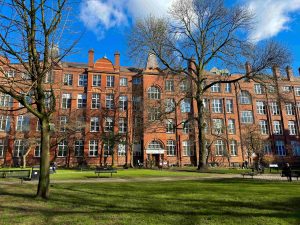Jobs more important than heritage status, say council chiefs

LIVERPOOL City Council chiefs have said job creation is more important than the city’s World Heritage status.
Speaking at a Downtown Liverpool in Business conference at the Crowne Plaza hotel on Monday morning, council leader Joe Anderson and chief executive Ged Fitzgerald said they had just returned from a meeting regarding this week’s visiting delegation from the United Nations’ leading cultural organisation, whose representatives are in the midst of a three-day visit to assess the World Heritage status of its waterfront.
Fitzgerald said that he felt the city could both retain its World Heritage status
and accommodate large-scale regeneration at the Liverpool Waters site, which is one half of a £10bn scheme by Peel Group that was granted Enterprise Zone status by the Government in March.
He acknowledged that inward investors are drawn to the city “because of our heritage and architecture”, but added that the city needed to continue to provide opportunities if it is to grow. Currently, the city loses a net 400 people a year.
“And what we need most today is jobs,” he said. “We need to make the climate as attractive for investment as possible.”
Liverpool’s World Heritage status is under review as a result of Peel’s £5.5bn Liverpool Waters scheme, which has been mired in planning negotiations for the past 12 months. English Heritage and Liverpool Preservation Trust have expressed concerns about the scheme – not least two clusters of towers of up to 200m planned for the site.
Yet city bosses are conscious that development on the opposite bank of the Mersey is moving on apace. Outline planning for its £4.5bn scheme was granted a year ago and an application for the first building – the £175m, 2.5m sq ft international trade centre – has already been submitted.
Cllr Anderson told the audience at the event, which took place as part of Global Entrepreneurship Week, that he felt the relationship between the council and the city’s business community “has never been better”.
“I don’t think anyone can say we haven’t got better in terms of planning in the last year.
“In some respects, I’m glad that some people we employed have moved onto pastures new.
“We have now got a can-do attitude. People don’t have to wait 3-4 weeks for a pre-planning meeting.”
Fitzgerald argued that the current debate raging in the national newspapers about planning had little relevance in Liverpool.
For instance, he described High Speed 2 as a project that held “fundamental” significance for the city, but said that in the national press it had been reduced to battles over villages in southern counties such as Hampshire and Berkshire.
“A one-size-fits-all planning system is not helpful to the North West,” he said.
Max Steinberg, chief executive of economic development company Liverpool Vision, said the rail link was important for inward investment purposes.
“The evidence is that businesses want to relocate here,” he said.
He added that US computer giant Dell were keen to attend next year’s Global Entrepreneurship Congress in Liverpool as it was planning to make a “major announcement” about investing in the city.








